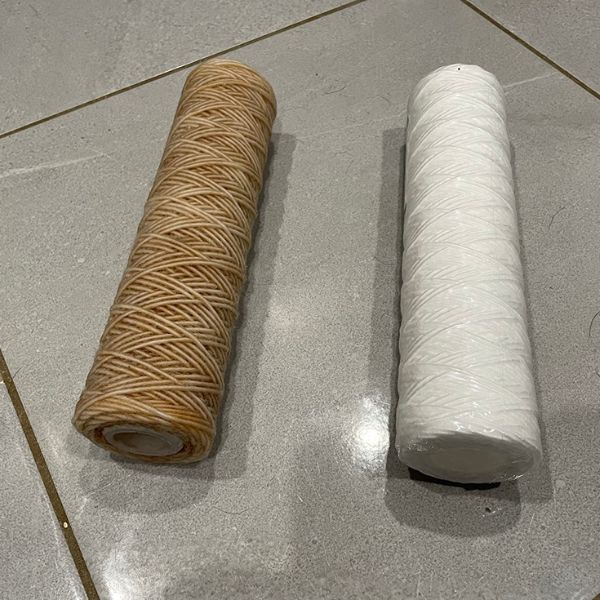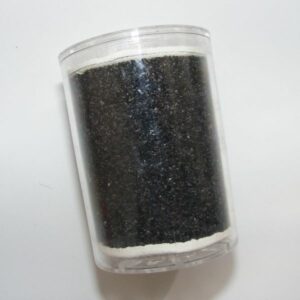What are Micron Ratings?
Micron ratings are a way to measure the effectiveness of filters. They indicate how small the particles can pass through a filter and determine their ability to remove contaminants from air or liquid. The lower the micron rating, the more efficiently the filter removes smaller particles.
Micron water filters with a high micron rating might be suitable for basic applications like removing larger debris from water sources or protecting equipment from damage caused by large particles circulating in air systems. However, filters with lower micron ratings are necessary for more demanding tasks such as removing bacteria and other microscopic organisms from drinking water or purifying industrial fluids.
It’s important to understand that not all filters are created equal, and choosing the right one depends on your specific needs. When selecting a filter, consider what you want it to accomplish and choose accordingly.
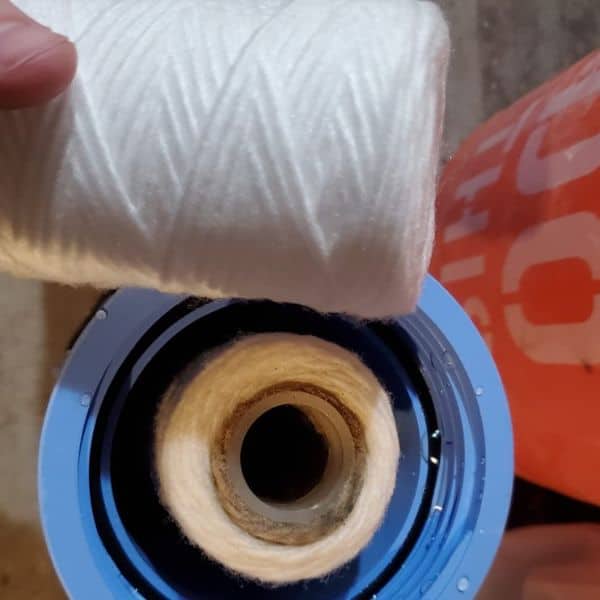
How to Choose the Best Micron-Rated Water Filter for Well Water?
When it comes to well water, choosing the best micron-rated water filter is crucial. Not only do you want to ensure that your drinking water is safe and free of contaminants, but you also want to consider the overall quality of your well water. In this list, you can find the best well water for whole house.
There are a few things to remember when selecting a micron-rated water filter for well water.
Water quality
When choosing the best micron filters for the well water, you must check how finely they filter out the water. One common contaminant in well water is sediment, ranging from larger sand or silt particles to smaller clay particles. A filter with a higher micron rating may be sufficient for removing larger sediment particles but will only catch some things.
On the other hand, a lower micron-rated filter will capture even small sediment particles more effectively. Other contaminants commonly found in well water include bacteria and viruses that require an even finer filtration system.
Flow rate
Another important thing a buyer should check is the flow rate of the filter. The flow rate refers to how much water can pass through the filter media in a given time, usually measured in gallons per minute (GPM).
If you have a large household or use a lot of water, it’s important to choose a filter with a high flow rate so that you don’t experience any drop in water pressure. On the other hand, if you have a smaller household or use less water, you can get by with a lower flow rate and save some money on your purchase. It’s also worth noting that higher micron ratings typically result in slower flow rates because more particles are being filtered out.
Filtration Performance
The effectiveness of a water filter in removing contaminants and impurities from well water depends on its micron rating, which indicates the size of particles that can be filtered out. A high-quality micron-rated water filter can provide clean and safe drinking water for your family while protecting your appliances and plumbing systems from damage caused by mineral buildup.
To determine the filtration performance of a well water filter, you need to look at its micron rating and flow rate. Micron rating refers to the smallest size of particles that a particular unit can filter out. For example, a 5-micron rated filter can remove particles as small as 5 microns in diameter from your well water supply.
Filter type
Another step in selecting a micron-rated filter is understanding what type of filter you need based on your well water’s unique characteristics. Some filters can be costly but last longer.
A whole house sediment filter (or carbon filter) would be ideal if your well water contains sediment or particles. Sediment filters come in different sizes ranging from 1-100 microns and are designed to capture larger particles such as sand, dirt, and silt.
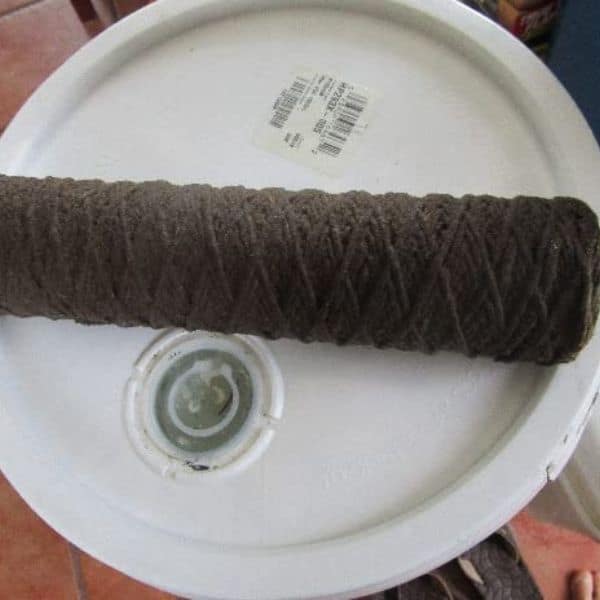
Well Water Filter Micron Ratings and the Contaminants They Can Remove
Micron ratings play a crucial role in determining the effectiveness of your well water filter. A micron is a unit of measurement that determines the size of particles that can pass through a filter. The lower the micron rating, the smaller the particles that can be filtered out, and thus, the more effective the filtration process will be.
Now, we will see the different well water filter micron ratings and the contaminants they can remove:
100 Microns
When it comes to filtering well water, one of the essential metrics to consider is the micron rating. Essentially, this rating refers to the size of particles that a filter can remove from your water supply. A micron is one-millionth of a meter, meaning it’s tiny enough to capture even the smallest impurities in your well water.
Filters with 100-micron ratings have pores small enough to catch particles that are approximately 100 microns or larger, including sand, sediment, and rust.
50 Microns
A 50-size micron filter can capture particles as small as 50 microns in diameter.
A filter with a 50-micron rating can remove sediment, dirt, and other particulate matter from well water. These contaminants can arise from various sources, such as soil erosion or corroded pipes. Removing these particles enhances the taste of your water and protects your plumbing system and appliances from damage caused by buildup over time.
25 Microns
A micron equals one-millionth of a meter so a 25-micron rated filter will remove any particles larger than 25 microns in size. Some common contaminants a 25-micron-rated filter can remove from well water include sand, silt, rust, and sediment. These contaminants can make the water appear cloudy or have an unpleasant taste or smell. They can also cause damage to plumbing fixtures and appliances over time if left untreated.
While a 25-micron rated filter effectively removes larger particles, it may not capture smaller contaminants like bacteria and viruses.
5 Microns
A filter with a 5-micron rating can capture particles as small as 5 microns in diameter. So, what kind of contaminants can a 5-micron filter remove from your well water? Examples include sand, silt, rust, and other sediment particles that may be present in your water supply. These particles can cause problems such as cloudy or discolored water, clogged pipes and appliances, and even reduced water pressure. A 5-micron filter can also remove some types of bacteria and parasites that may be harmful if consumed in large quantities.
1 Micron
A filter with a 1-micron rating can effectively remove small particles such as sediment, sand, and rust from well water. These particles may seem harmless at first glance; however, they can cause damage to pipes and appliances over time. In addition to physical impurities, a 1-micron-rated filter can remove microbial impurities such as bacteria and viruses from well water.
The Sub-Micron Level
The sub-micron level in a well water filter refers to the size of particles that can be removed from the water. Specifically, it means removing contaminants smaller than one micron in size. This is important because many harmful substances, such as bacteria, viruses, and heavy metals, can pass through traditional filters due to their small size.
However, with a sub-micron level filter, these contaminants are captured and removed from the water. For example, a filter with this capability can remove cryptosporidium and giardia, microscopic parasites commonly found in well water sources. Contaminants that could be filtered out include lead, mercury, pesticides, and herbicides.
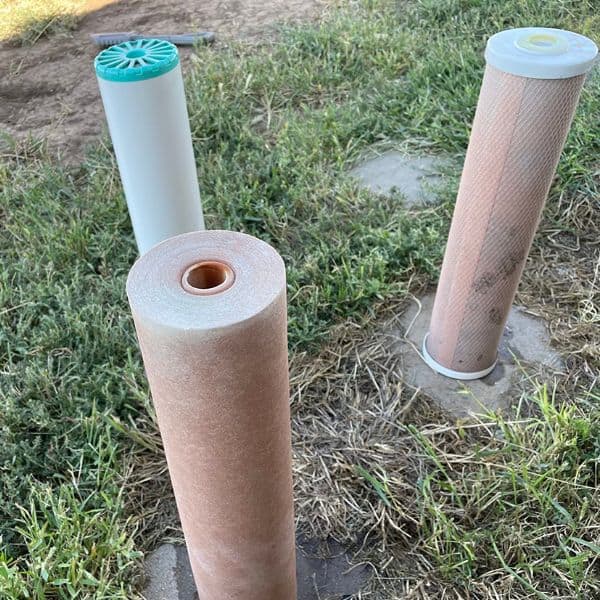
What Micron Rating Should Your Whole House Filter for Well Water Be?
The most common micron ratings used in whole-house filters for well water are 5 microns and 1 micron. However, choosing between these two sizes depends on the specific needs of your household. If you have a high sediment level or larger particles in your well water supply, a 5-micron filter may not be sufficient to trap these contaminants. In this case, a 1-micron filter would be more effective. However, if you have high chlorine levels or other chemicals in your well water, a 5-micron filter would be more effective and recommended.
Conclusion
There are many different micron-ratings for well water filters, such as 5-micron, 1-micron, 25-micron, and 100-micron. Each micron rating type effectively removes certain contaminants from your well water supply. The best micron filter for a particular well water system may vary depending on the specific needs and environment of the home or business. Consumers should research their options carefully before deciding which micron filter is right for them.
